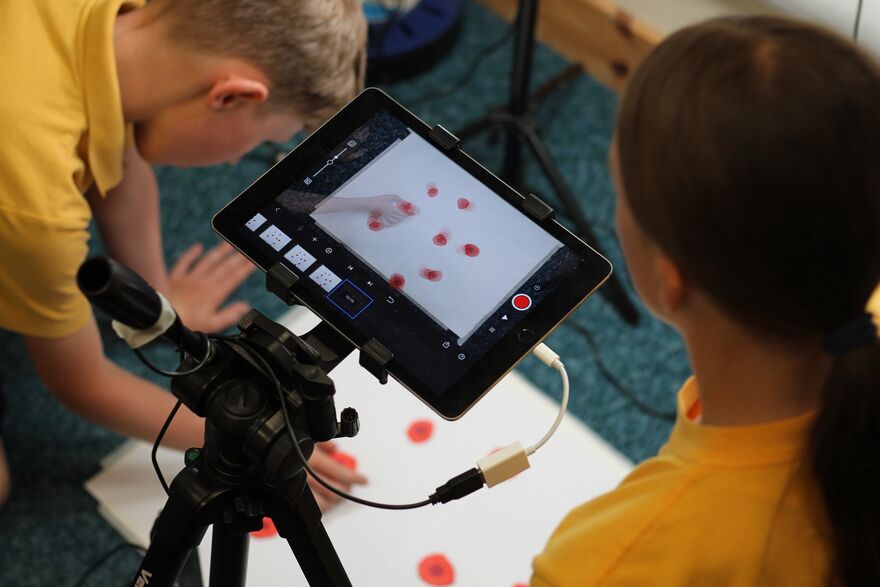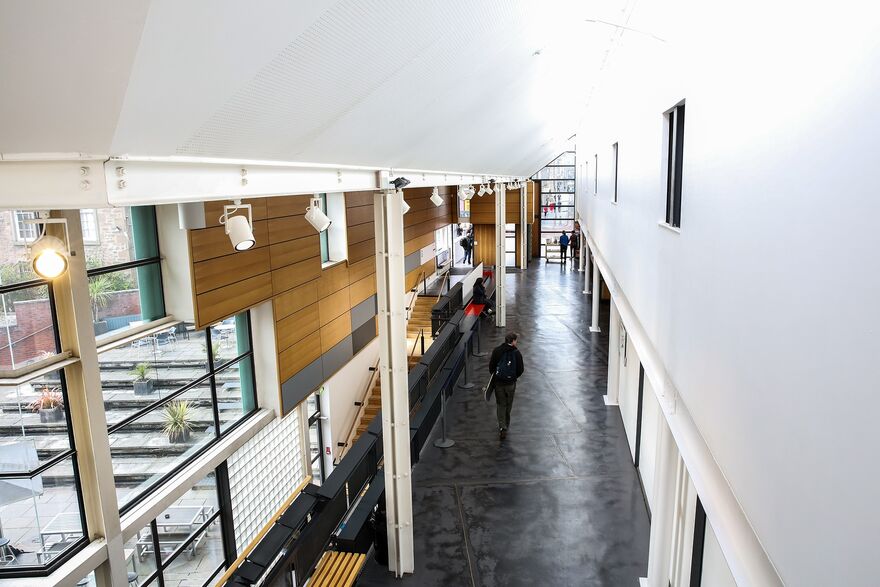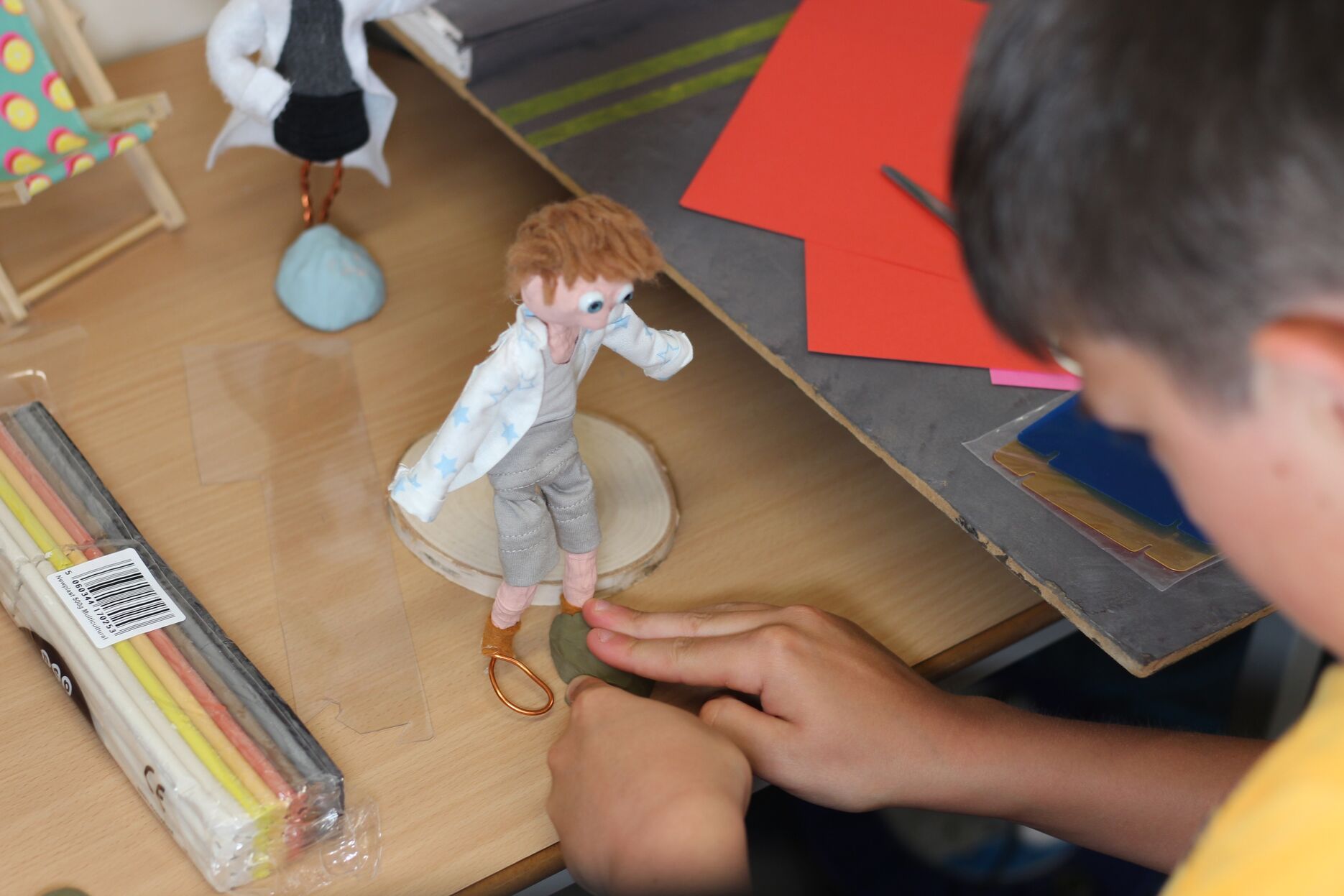
Dunning Primary test drive new Animating Science resources
As our Animating Science project with University of Dundee’s School of Life Sciences comes to an end, Dunning Primary test out new teaching resources to create an animation about DNA.
As well as all the fun events, workshops and Create Space activities at DCA, our Learning team also work with schools, community groups and organisations on different projects.
One of these is Animating Science, a partnership with University of Dundee’s School of Life Sciences which aims to develop stop motion animation skills with pupils and teachers, support them to create films about Life Science concepts, and increase engagement in science generally.
It all started with the launch of the pilot project, then we evaluated the results before taking it out to different schools.
Published

New resources
For the final part of the project, our Learning team have been creating an online resource to support teachers and P6/7 pupils to allow them to deliver the project in the classroom. This is in addition to (and pairs nicely with) the film education and stop motion animation CLPL and taster sessions we offer teachers at DCA, and the University of Dundee Life Sciences' range of resources for schools.
Primary 6 and 7 pupils from Dunning Primary School test drove these new resources along with their teacher, Stuart Dallas. Mr Dallas was one of the original pilot school teachers evaluating and developing the project right at the start, so it was great to have him involved again.
Being part of Animating Science has given me renewed impetus to incorporate animation into my teaching and has reminded me of the importance of creativity in children’s education.Stuart Dallas Dunning Primary School Teacher

Exploring science
To start things off, Dunning pupils chose the topic of ‘DNA and Inheritance’ for their science film and did a live experiment to extract DNA from strawberries. They worked together to create ideas for a storyline, characters, scenery and sound effects, then storyboarded their ideas and decided what kind of animation technique they wanted to use, and how to physically create sets and characters.

Animation
They then got to work animating their story. Mr Dallas used the resources to keep the project moving forward each week, with science and animation help provided by University of Dundee staff and DCA Learning Coordinator, Andrew Low.
As part of the project, the pupils said they wanted to learn how to make a good animation, create a good story, set up and use camera equipment, deal with mistakes and learn more about science and DNA. Looking at their final film, we'd say they achieved all that and more. Watch Traces of a Thief: DNA Saves the Day and see for yourself:
Impact
Based on feedback and benchmarking from the project, it looks like the new resources were a hit. Pupils reported feeling more confident and interested in science after completing the project and said it helped them to feel included and taught them skills like teamworking, animating, art and crafts, and patience. Mr Dallas summed it up well:
The best thing about the Animating Science project was the fantastic learning the children did. The interdisciplinary nature of the project allowed for learning across many curricular areas, and the children hit outcomes not only at Second Level but also Third. The children were engaged throughout the project and enjoyed being so involved in the process.
Other comments from the pupils included:
Working together made everything fun.
I think the most important thing was learning about the science in the film and making sure there are no hands in the shots or noise in the voice over.
I made sounds for the film. Because I’m shy I don’t like to talk so this job was nice for me.
I enjoyed it because it was very fun and artistic.
The new Animating Science teaching resources with be available online soon. If you have any questions about the project, you can contact DCA Learning team on learning@dca.org.uk.


